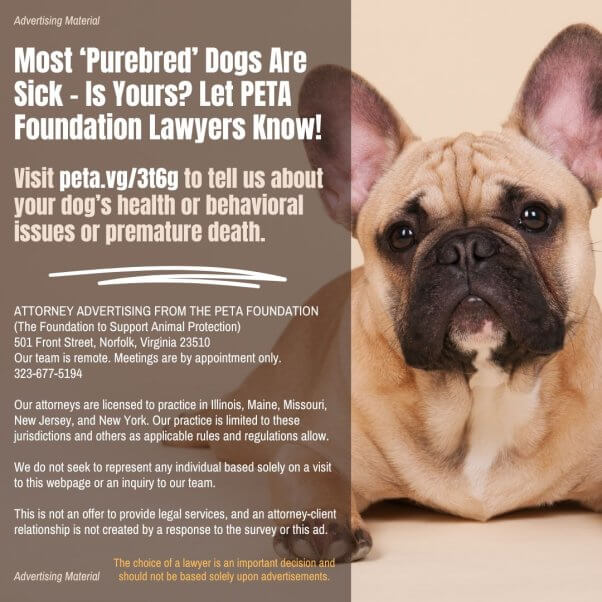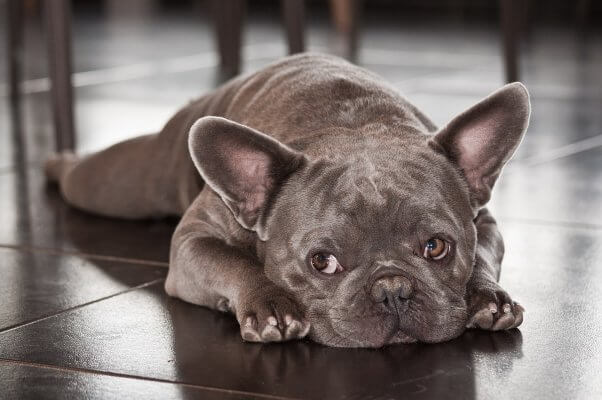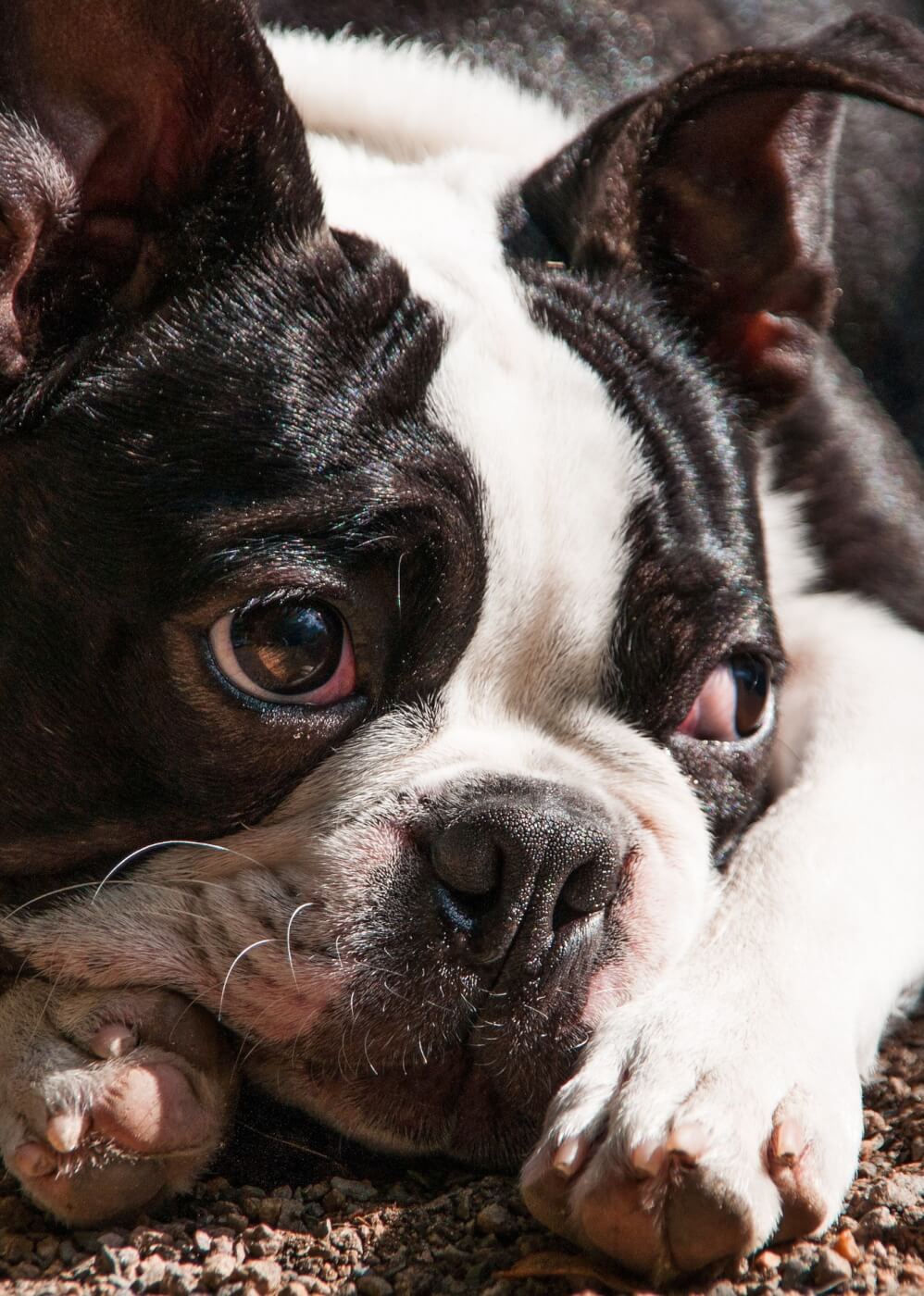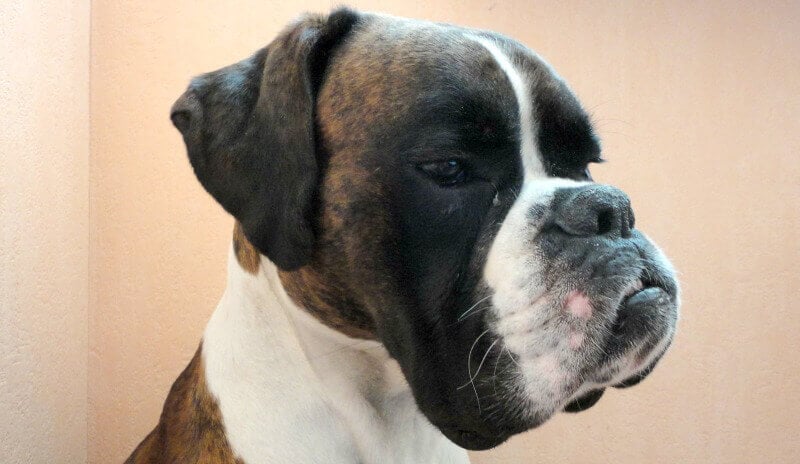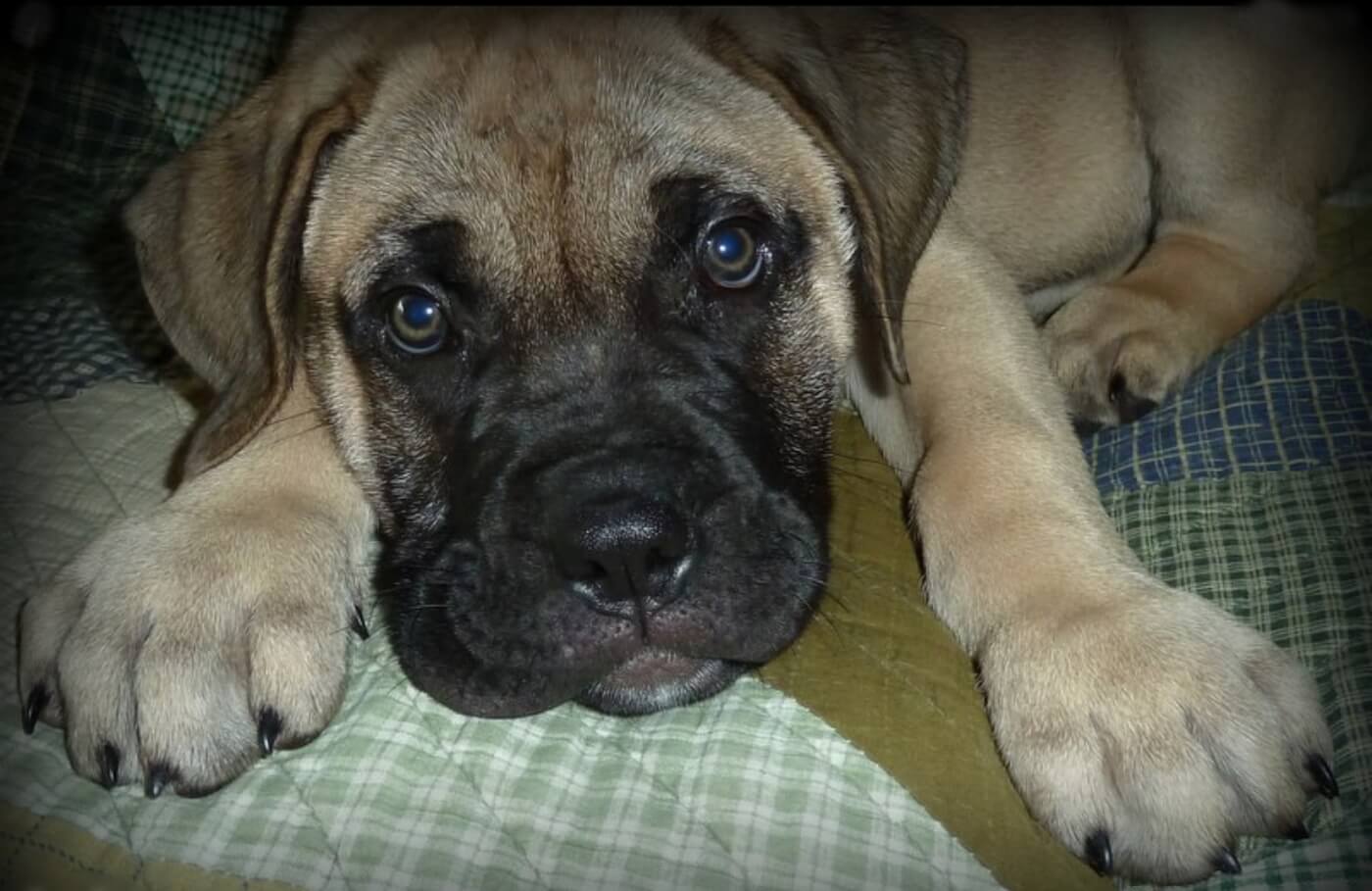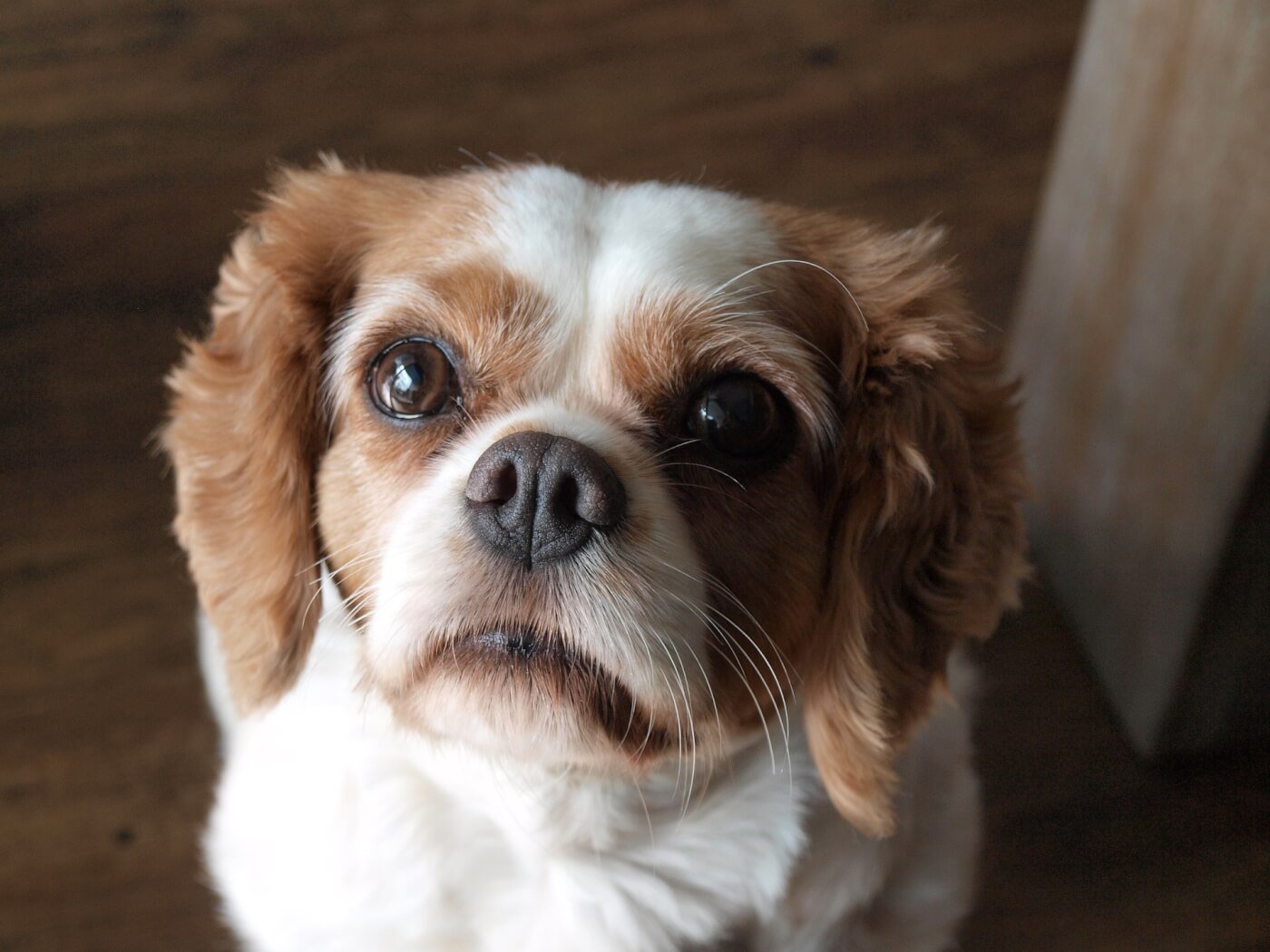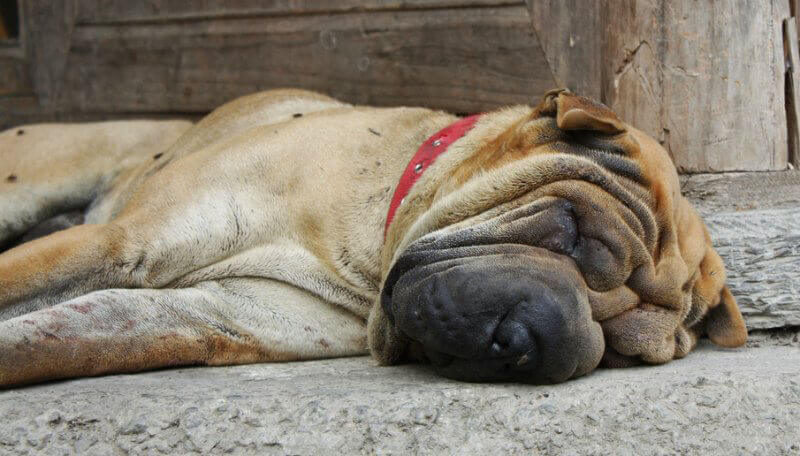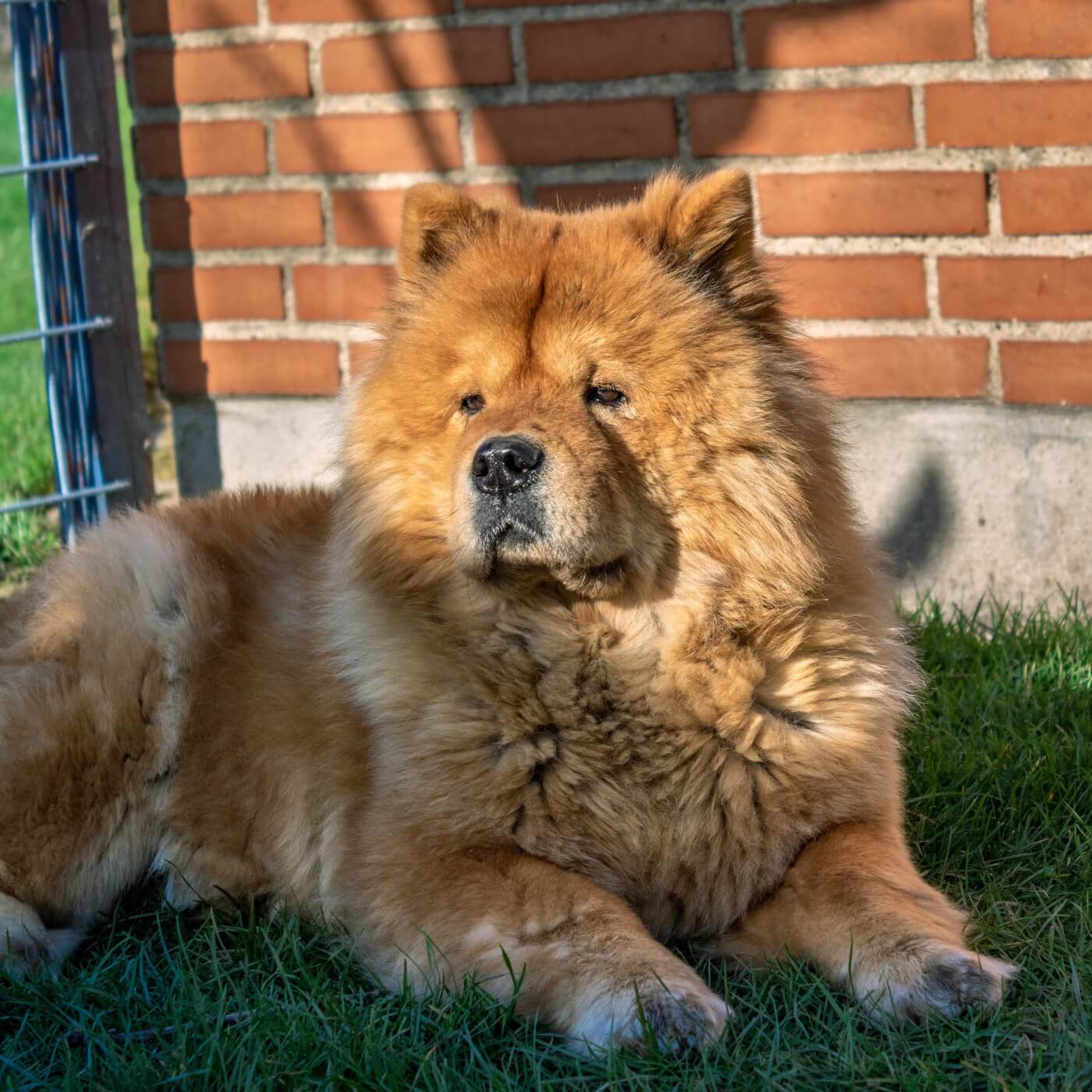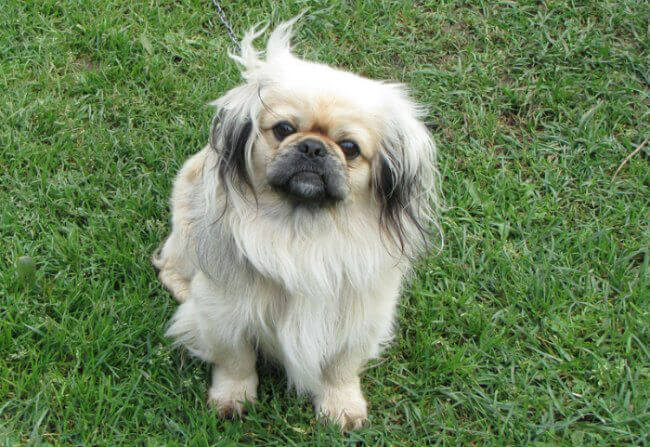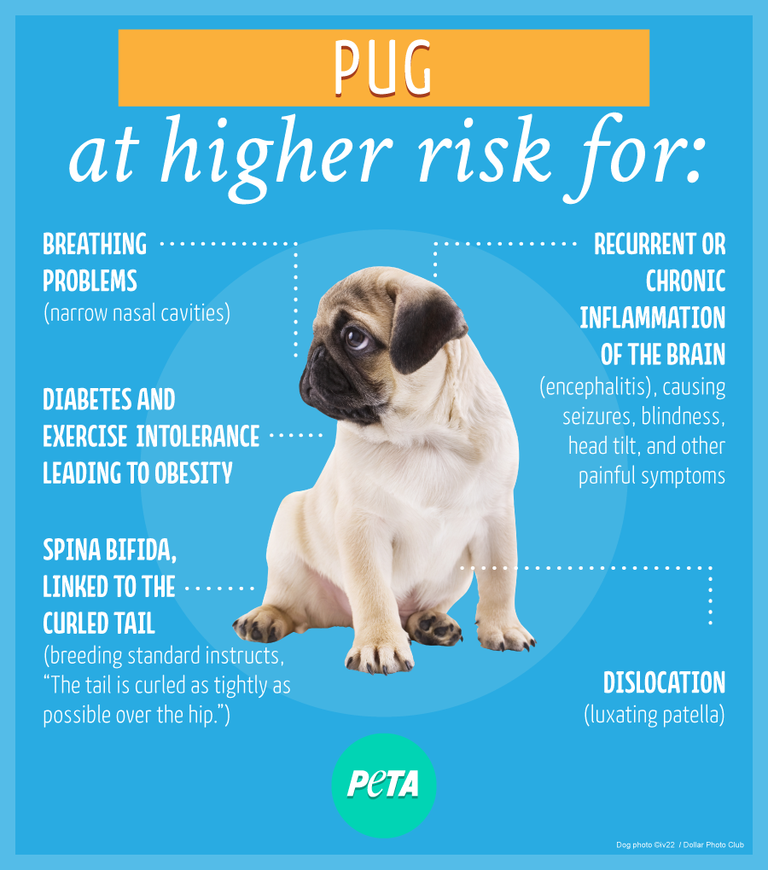18 Breathing-Impaired Breeds and Why They Need to Be Banned
Humans’ obsession with breeding and buying dogs has led to a host of health problems for all “purebreds” and particularly breathing-impaired breeds. These breeds are afflicted with an uncomfortable, debilitating, and sometimes fatal condition called brachycephalic obstructive airway syndrome (BOAS), which leaves many dogs struggling to breathe and unable to do some of the things they love the most, like going for a walk or chasing a ball. They also suffer from a variety of other hereditary health conditions.
All purebred dogs and even some mixes of purebreds, like “puggles,” are deliberately bred to have certain traits or characteristics, which can cause serious genetic health problems, including constant pain and even an early death. It’s cruel to breed and sell dogs when it is well known that they will struggle to breathe, as well as suffering from other medical conditions for their entire lives. Because of the debilitating health problems they commonly face, all purebreds, especially breathing-impaired breeds, should be banned.
Here are all the breathing-impaired breeds and some of their breed-related health problems that cause them pain and suffering:
Affenpinscher
Not only are affenpinschers susceptible to BOAS because of their misshapen noses, they’re also prone to painful and debilitating hip problems, including arthritis and a condition that can weaken the bones of the hip joint and lead to a fracture at 6 to 9 months of age. These issues can plague them for the rest of their lives, compromising their quality of life.
American Bulldog
These dogs tend to be energetic and playful, but their flat faces and deformed nostrils make it hard for them to breathe during even light exercise. Some of the things they love to do the most—playing with other dogs, taking long walks in the sun, playing fetch—can be life-threatening activities for breathing-impaired breeds like the American bulldog.
Boston Terrier
Boston terriers have more health issues, including breathing problems, than other similarly sized dogs. Other common conditions include spinal deformities, eye problems, heart failure, and epilepsy. Humans bred these dogs to have dome-shaped heads simply because that makes them appear more puppy-like, and as a result, these animals frequently suffer from terrifying seizures.
Boxer
Boxers are more likely than other dogs to develop a dilated cardiomyopathy unless it’s discovered and treated early. However, the most common symptom of this condition is trouble breathing, and since these short-nosed dogs are already prone to breathing difficulties, it may take longer to recognize the signs. They’re also at very high risk of developing certain types of cancer.
Brussels Griffon
Like all breathing-impaired breeds, Brussels griffons have to be carefully watched when they’re engaged in activities that dogs love, like playing and running, because their airways can easily become blocked. What should be a fun day in the park can easily turn deadly for these dogs. They’re also prone to other conditions seen in tiny dogs, including spinal cord malformations caused by their misshapen skulls.
Bullmastiff
Many large purebreds suffer from conditions that can severely limit their quality of life, and bullmastiffs are no exception. Hip and elbow dysplasia can be common, leading to excruciating arthritis that makes walking, running, and playing difficult and painful.
Cane Corso
Because of their large bodies and deep chests, cane corsos can suffer from bloating, a sudden and life-threatening condition in which the stomach fills with gas and twists on itself. Dogs who experience this malady can die within hours, even if treatment is sought immediately. It’s an extremely painful way to die, and it only occurs because of the unusual shape of a cane corso’s body.
Cavalier King Charles Spaniel
Cavalier King Charles spaniels’ deformed skulls cause them to have bulging eyes, which can even pop out of their skulls. Because their skulls are too small for their brains, many find themselves in lifelong excruciating pain, but there’s no treatment for this condition.
Chinese Shar-Pei
Loose skin folds make shar-peis susceptible to skin infections, sores, rashes, and lumps. Eye disorders are also very common in this breed, including a painful condition caused by excess skin around the eyelids, which can lead to ulcers and eventually blindness if left untreated. Just imagine having an open sore on your eye, which is further irritated every time you blink.
Chow Chow
Hypothyroidism is a common condition that chow chows face when their bodies don’t make enough thyroid hormone. It can lead to dry and itchy skin, hair loss, weight gain, and behavioral changes. When dogs have itchy skin, they may lick or scratch themselves often to get some relief, which only leads to more irritation and pain.
Dogue de Bordeaux
The dogue de Bordeaux, or French mastiff, typically lives only six to eight years because of various common genetic health problems. These giant dogs have trouble regulating their own body temperature in warm weather, so they can easily become dangerously overheated.
English Bulldog
Because of their deformed faces, English bulldogs can suffer from serious breathing problems—even a short walk can be life-threatening. Centuries of selective breeding and inbreeding have resulted in a short life plagued with problems such as hip dysplasia, eye and ear conditions, serious allergies, and even autoimmune disorders.
French Bulldog
French bulldogs are at significantly greater risk than other dogs for breathing difficulties, ear discharge, skin-fold dermatitis, and difficulty giving birth.
Japanese Chin
This breed can be affected by a genetic mutation that causes a fatal neurological condition similar to Tay-Sachs in humans. A dog who has the condition starts showing signs at around 15 to 18 months of age, at which point the disease progresses quickly. Dogs with this condition often experience seizures, loss of balance, loss of vision, and an altered mental state for several months until they die.
Lhasa Apso
Kidney dysfunction is a common hereditary health problem seen in Lhasa apsos, which can cause them to suffer from excessive thirst and urination, loss of appetite, weight loss, and low energy.
Pekingese
When you think of Pekingese, you may recall their typical snorting, sniffling, wheezing, and snoring. These are all signs that they can’t breathe properly because of their flattened, misshapen noses. Dry eye, glaucoma, and dislocated kneecaps are other health problems that can make daily life painful for them.
Pug
Pugs’ skulls have become significantly smaller over the years, as humans have bred them to have certain physical attributes. While their heads are shrinking, the rest of them is not—meaning that their brains and other soft tissues are getting squeezed and crammed into a skull that’s too small. Their tiny heads also can’t accommodate their teeth, tongue, eyes, and skin, which leads to various painful health problems.
Shih Tzu
Shih tzus’ eyelids cannot close properly because their faces are deformed, which often leads to inflammation, irritation, and other eye problems, because their eyes are overly exposed to the air. Imagine living with chronic red, irritated eyes and no way to stop them from itching! Many shih tzus are also prone to allergies, which can require both veterinary and home care to control.
This Needs to Stop—Never Breed or Buy Dogs
Humans caused brachycephalic syndrome by breeding dogs. Studies have shown that bulldogs, for example, are so inbred that it is virtually impossible to produce them without harmful traits. Humans are breeding and buying these sick, suffering dogs while millions of other dogs are struggling to survive on the streets or are living in shelters.
There’s No Such Thing as a ‘Responsible Breeder’
The solution is simple: Stop churning out and buying breathing-impaired breeds—or any other purebred dogs. All purebreds (flat-faced or not) and crosses of purebreds suffer from congenital, often painful conditions. If you have the time, money, patience, and love to care for an animal for life (which could be for more than 15 years), please adopt one (or two) from a shelter. If you already have a breathing-impaired breed of dog, commit to making their life as fulfilling, healthy, and comfortable as you can. Urge your friends, family, coworkers, and neighbors never to buy an animal—ask them to adopt instead. And always have your animal companions spayed or neutered and help others do the same.
